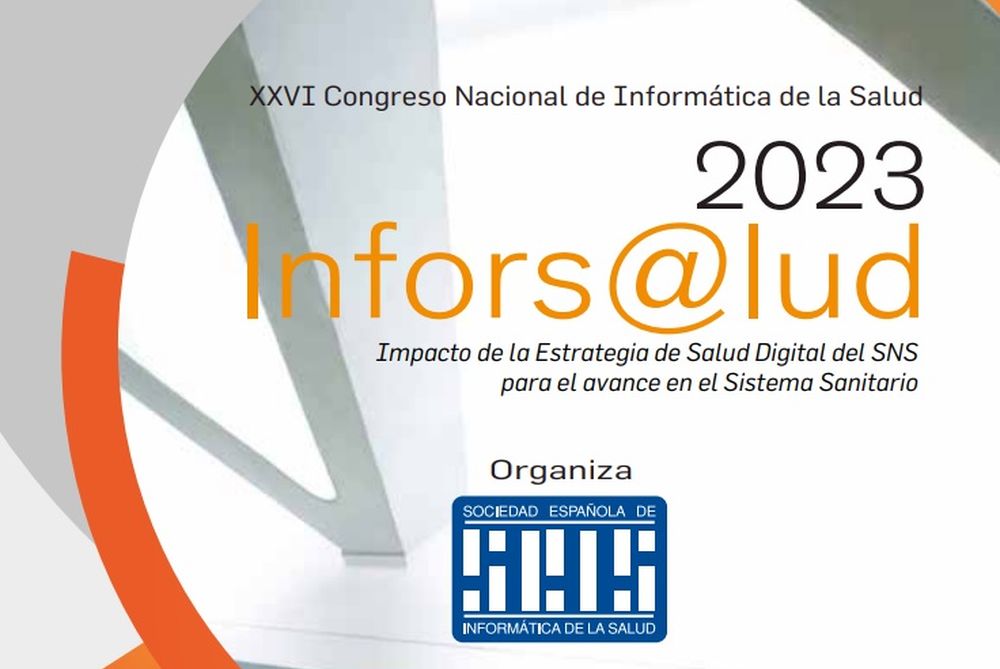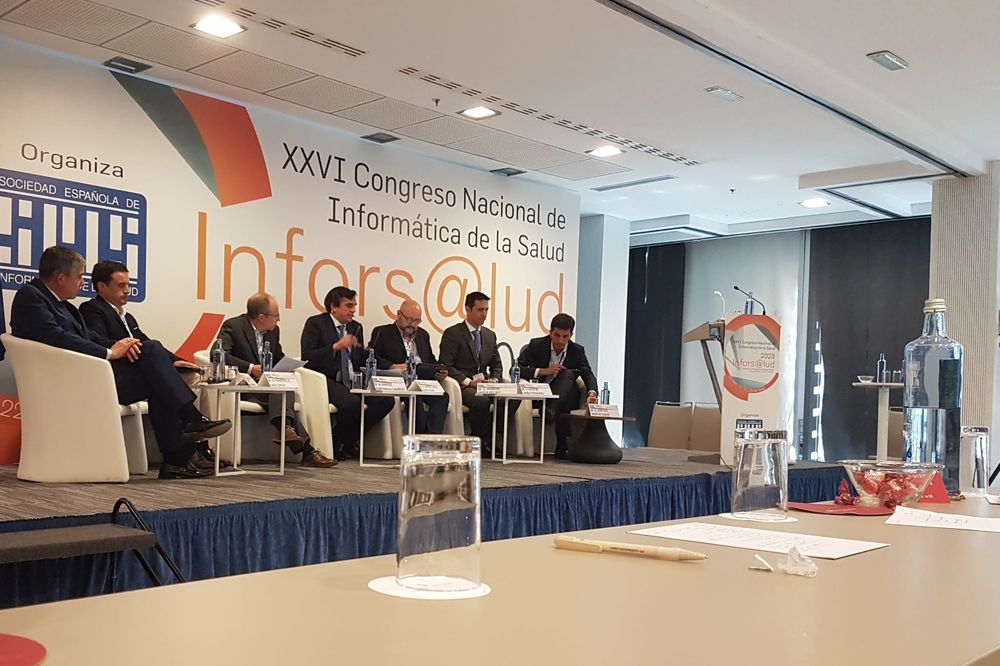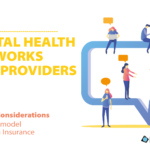From 21 to 23 March 2023, the XXVI National Congress of Digital Health was held in Madrid, which Delonia Software attended together withVIDAL Vademecum.
One of the objectives of the meeting was to learn about the development of the digital strategy of the National Health System, in addition to highlighting the needs and advances in the health sector. At the discussion tables, the focus was placed on the development of public health projects, applicable in many aspects to private health, although it was not in the private sector where the greatest interest was placed.
Building the health data space: challenges and opportunities at the national and cross-border level
Here interesting and current topics were discussed. It was raised how health data will be shared and governed between the countries of the European Union. To do this, it is necessary to differentiate between data for primary use -care- and secondary use -research-. Miguel Ángel Moreno pointed out the need to create use cases that help citizens understand the value of data, beyond its advertising use. L. The European Data Strategy seeks to turn the EU into a single data market, making it more competitive compared to countries like the United States or China. It is necessary to harmonize the interpretation of the data from the different European countries, which is an important and complex challenge. Alberto Pinedo pointed out that it was difficult to share data with technology from 20 years ago, a drawback that cannot be ignored.
Ignacio Coll Clavero insisted on a key point: it is necessary to generate trust in the citizen, because if he/she does not give up his/her data, nothing can be built. The citizen must control his information and know that he has the last word on the use of his data, even so that he can share a limited part of it, and not necessarily all of it, always for the purpose he wants to use it for.
Plans for Digitization: Primary and community care and personalized digital care
Fundamental issues were addressed in this debate. . Mercedes Alfaro stressed the idea that healthcare should incorporate technological and not just health roles in order to face the challenges that lie ahead, including preventing and treating chronic disease more efficiently.
There is a digital divide among both healthcare professionals and patients that hinders the implementation of technology. Changes must come from the bottom up so that there is no resistance, as it is often the professionals themselves who are most resistant to change.
Priorities such as data quality and a single, interoperable medical record are still a long way off. Health professionals should spend their time on patient care and not on administrative work. Therefore, care must be recorded in the history in the simplest and most efficient way possible.
Cybersecurity in the health sector
José Luis Rojo de Luque pointed out that we have an interconnected healthcare environment, which aspires to be increasingly so, but with many obsolete legacy systems and a very large and exposed perimeter of control. Cyber-attacks are a real danger as they have already brought some hospitals to a halt. This is even though the attacks detected are often not very complex. But the question is: are the attacks unsophisticated or are the complex ones not even detected?
The health professional is always being trained and sees this ongoing effort for health issues as normal, but it is not done in cybersecurity, a pending issue in many organizations. There is a lack of training and when it is given, it often does not fit into the daily work patterns.

Developing digital talent in healthcare
As José Manuel Baltar pointed out, digital transformation involves changing the organization and processes, something that affects employees and their work culture. On the other hand, there is no mention of the collaboration of public and private healthcare, but the system will not work if the 12 million private healthcare users are left out. José Manuel Baltar noted that interoperability must be universal or little progress will be made.
Francisco Javier Turumbay insisted that for the available data to be valid, they need to be interoperable, shared and semantic (homogeneous), and for this to happen, professionals need to record them in the appropriate, i.e. standardized, way. The professional must perceive that these requirements are not intended to bureaucratize the system but are necessary to provide a better service and benefit everyone, professionals, and patients.
Incorporating AI into health services
re is a lot of talk about AI (artificial intelligence) but in practice there are few applied solutions whose use is very interesting, e.g. for structuring diagnoses or processing the natural language contained in medical reports.
For the implementation of these solutions, the medical culture must be taken into account, as professionals may have resistance and become a barrier to the implementation of these solutions. However, it seems undeniable that in a few years, professionals who use AI in their medical practice will obtain better results than those who do not. will certainly become essential and healthcare professionals will eventually accept it. As far as patients are concerned, it is necessary to explain to them how artificial AI will help them to overcome their reluctance.
Francisco Sánchez Laguna indicated that AI has become fashionable, but we must use it based on evidence, and more so in healthcare, and it is not always easy to obtain and verify these certainties. We are also unclear on how to avoid biases in the use of artificial intelligence. The professional makes mistakes due to cognitive bias and this is going to be transferred to the AI, but we still do not know how to deal with this aspect or how to correct it in the algorithms.
David Álvarez López warned that there is no standardization in the use of this technology. At present, AI does not generate accepted diagnoses. The scientific evidence on which we must rely is still scarce. He insisted once again that the models must generate evidence and there is a need for certification units for the algorithms.
Ignacio Redero García fwas another of the speakers who brought up the ChatGPT phenomenon, which in 2 months has been used by more than 100 million users and is having an impact on the public image of AI. 15 million patients search for information on Google accessing unreliable sources. We still need quality data and a homogeneous and semantic interpretation of it.
In summary, the 26th National Congress of Digital Health highlighted the challenges facing healthcare, in terms of digitization and the use of cutting-edge technologies. Both healthcare professionals and patients will have to change their behavior patterns to embrace disruptive technologies such as AI that are not only here to stay, but to help us in the fight against disease. We must all work to overcome barriers and build a more integrated, safer, and interconnected healthcare system.




